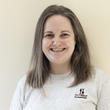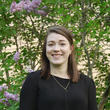Archaeology
We promote and preserve Boston's many diverse archaeological resources through curation, excavation, and education.
The City Archaeology Program was founded in 1983 to protect Boston's irreplaceable archaeological resources. Boston has hundreds of known archaeological sites in the City's borders. Archaeology staff curate the archaeological collections at the City’s Archaeology Laboratory. We are the review and compliance agents for below-ground cultural resources in the City. We have several City programs to educate the public in archeology. We also manage Rainsford Island, one of the City’s most important historical holdings.
Our exhibits are open to the public Monday through Friday from 9 a.m. to 4 p.m.
To access our collections or meet with a member of our staff, send an appointment request to archaeology@boston.gov. Learn more about our lab's location at 201 Rivermoor Street.
Virtual Exhibits
A Tale of Two Privies
Archaeological Stories from Boston's North End 1850-1880
Explore the stories of the Endicott Street brothel and Revere House privies.
Boston Common Archaeology
An archaeological history of Boston's backyard
Archaeologists have conducted several surveys on Boston Common. These surveys have revealed long-buried stories of its many uses.
Slavery in Boston
This exhibit confronts Boston’s role in slavery and reveals the lives of individual enslaved people: the persistence of their community, their fight for freedom, and how the struggle for freedom continues today.
Uncovering Boston's history
Watch: Dillaway-Thomas House
Learn about the history of this Highland Park Landmark-designated property from Native occupation to Revolutionary War to first Japanese cultural exchange in America.
Watch: Rare find at the Pierce-Hichborn site
An artifact with King William III's face on it found during a dig in the North End.
Watch: 300-year-old gravestone found
Hear the story of a 300-year-old gravestone found during a construction project in Boston.
More videos from Boston Uncovered
We launched a video series highlighting Boston's history.
Major Initiatives
Boston Harbor Islands
Archaeological Climate Action Plan
An innovative collaborative effort to document sites before the are lost to climate change
Slavery in Boston Exhibit
In Faneuil Hall
Confronting the reality and legacy of slavery in Boston
Boston 250 Archaeology
Archaeology projects in Charlestown and beyond in recognition of 250 years since the American Revolution
Archaeological sites
James Garrett House Site
Excavated during the Big Dig, this collection is the biggest 17th-century assemblage in Boston.
Loring-Greenough House
Jamaica Plain
The c. 1760 Loring-Greenough House is a Landmark-designated property in Jamaica Plain. It was a Native Massachusett site, a site of enslavement, and a Revolutionary War hospital.
558 Massachusetts Avenue
South End
Built in 1858, it has been the headquarters of the League of Women for Community Service, a Black women's civic organization, since 1920.
42-44 Shirley Street
Roxbury
An outbuilding of the Shirley-Eustis House and possible location where enslaved occupants of the property lived.
6 Hudson Street
Chinatown
Archaeological dig at 6 Hudson Street, former site of Ruby Foo's Den
Old North Crypt
North End
Archaeologists conducted a dig in the crypt at Old North Church in the North End.
Malcolm X- Ella Little Collins House
Roxbury
Archaeologists conducted a survey at the landmark-designated Malcolm X- Ella Little Collins House.
Seaport shipwreck
Seaport
The remains of a 19th-century lime schooner were discovered during construction at 121 Seaport Boulevard in May 2016.
Clough House
North End
The Clough House, owned by the Old North Church Association, is located at 21 Unity Street in Boston's North End.
Old City Hall/Boston Latin School
Downtown
Archaeologists surveyed the front yard of Old City Hall to find evidence of the 1635 Boston Latin School.
Training Field
Charlestown
The historic Training Field has been an active participant in Charlestown’s history since the 17th century.
Boston Common
Downtown
Archaeologists have conducted archaeological digs on Boston Common for decades, unearthing thousands of years of Boston history
Faneuil Hall
Downtown
Archaeologists have conducted two archaeological surveys at Faneuil Hall in 1991 and 2010 discovering tens of thousands of artifacts from Boston's former shipping hub: Town Dock.
Paul Revere House & Lathrop Place Archaeological Sites
North End
Archaeologists surveyed the yard of the ca. 1680 Paul Revere House and 5 & 6 Lathrop Place, two 1835 row houses on what was once the back of the Revere property.
Endicott Street Brothel
North End
Archaeologists in the 1990s excavating ahead of the "Big Dig" uncovered the privy of a mid-19th century brothel in the North End.
Brook Farm Archaeological Site
West Roxbury
Brook Farm has been home to Boston history for over 5,000 years, from Native sites to a Utopian transcendentalist community.





